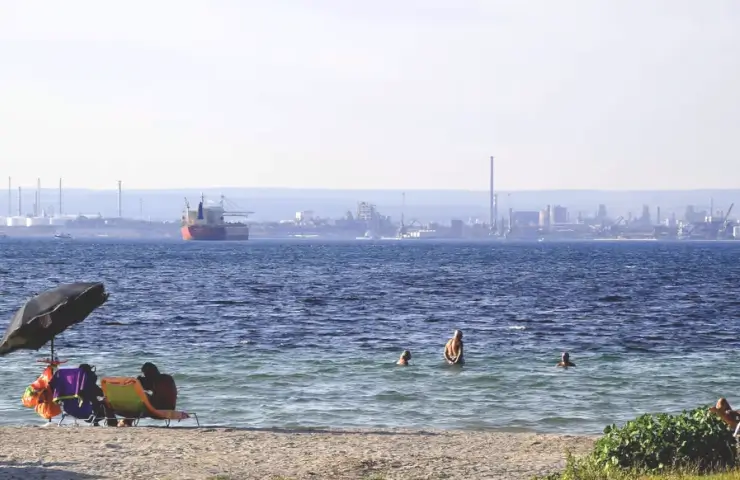Today, the Taranto ironworks is still one of the worst pollution incidents in Europe, dooming the city's residents to the shortest life expectancy in Italy, and high cancer deaths among factory workers and nearby residents, including children. About this on Thursday writes POLITICO.
Valerio Cecinati, head of the department of pediatric hematology and oncology at the Santissima Annunziata hospital in Taranto, told reporters that there was no doubt that the plant should be closed.
“Speaking as a doctor and as a citizen, I believe that it should simply be closed, simply and clearly,” he said. "Because if there are young children suffering from several diseases ... it's not worth the risk."
However, the Italian government says it has no intention of closing the plant.
In a speech in June, Mario Draghi announced that the government intended to rebuild the steel plant in Taranto.
This is partly due to the war in Ukraine, which "caused a major disruption in the steel industry's supply chain and raised awareness of the strategic importance of primary steel production," an Italian government spokesman said.
The EU covers about 26% of its steel consumption through imports, with Russia, Ukraine and China among the top ten exporters in the bloc.
At its peak in the 1970s, the plant produced 11.5 million tons of steel per year. In 2021, it produced about 4.4 million tons.
The slump in its production is partly the result of disputes with Brussels and the Italian judiciary over the plant's environmental and health impacts.
When the plant was nationalized and leased to ArcelorMittal in 2017, "commitments" were made that, according to a European Commission spokesman, "appeared to be about issues of concern to the Commission." The plant visit reassured the commissioners that "all relevant improvements are on track" and should be completed by August 2023, a deadline extended by the government in 2017.
In the same year, the European Commission suspended its activities, and the Italian Constitutional Court ruled that the government did not take into account the health of citizens and workers when issuing its rulings. The following year, the European Court of Human Rights condemned Italy for failing to protect its citizens from factory pollution.
In May this year, the ECtHR issued four new convictions against the country, following complaints from employees filed between 2016 and 2019 and complaints from more than 200 people living in or around Taranto.
The Italian government's response to the city's concerns has been a so-called "factory decarbonization" plan, which it says is in line with the bloc's broader ambitions to green the steel industry.
The total investment in the steel plant in Taranto, according to the government, will be 4.7 billion euros. The money will be used to transition from blast furnaces to electric furnaces, hydrogen technologies and other measures to reduce the carbon footprint of the plant.
Neither the government nor the plant has made public the sources of funding for the project.
These promises come at a time when a host of factors, including the war in Ukraine and inflation, threaten to hit the Italian economy.
According to documents obtained by POLITICO, Italy was trying to get money from the Unit's Recovery and Sustainability Fund to upgrade the plant, leading to political pressure from Green MEPs who claimed the plant did not comply with EU laws. The commission ultimately did not approve the plans.
Responding to a question about the plant's impact on local health, the official said those concerns were based on outdated research and said "the current health impact of the pollution is in line with national and international environmental standards."
“The option of closing the plant is not being considered,” the official added.
Emails sent to POLITICO requesting comments from the Italian government were initially forwarded to Acciaierie d'Italia, the company that runs the plant. The company has previously declined requests for plant visits and interviews with management.
According to information on its website, the company has allocated 1.15 billion euros to complete the improvement measures previously agreed with the government and is on track for the August 2023 deadline. In April, the company published a lengthy defense claiming that other industries in the region could also cause pollution.
Acciaierie d'Italia has also publicly stated that it aims to ramp up its steel production, with a 40% growth target for this year




